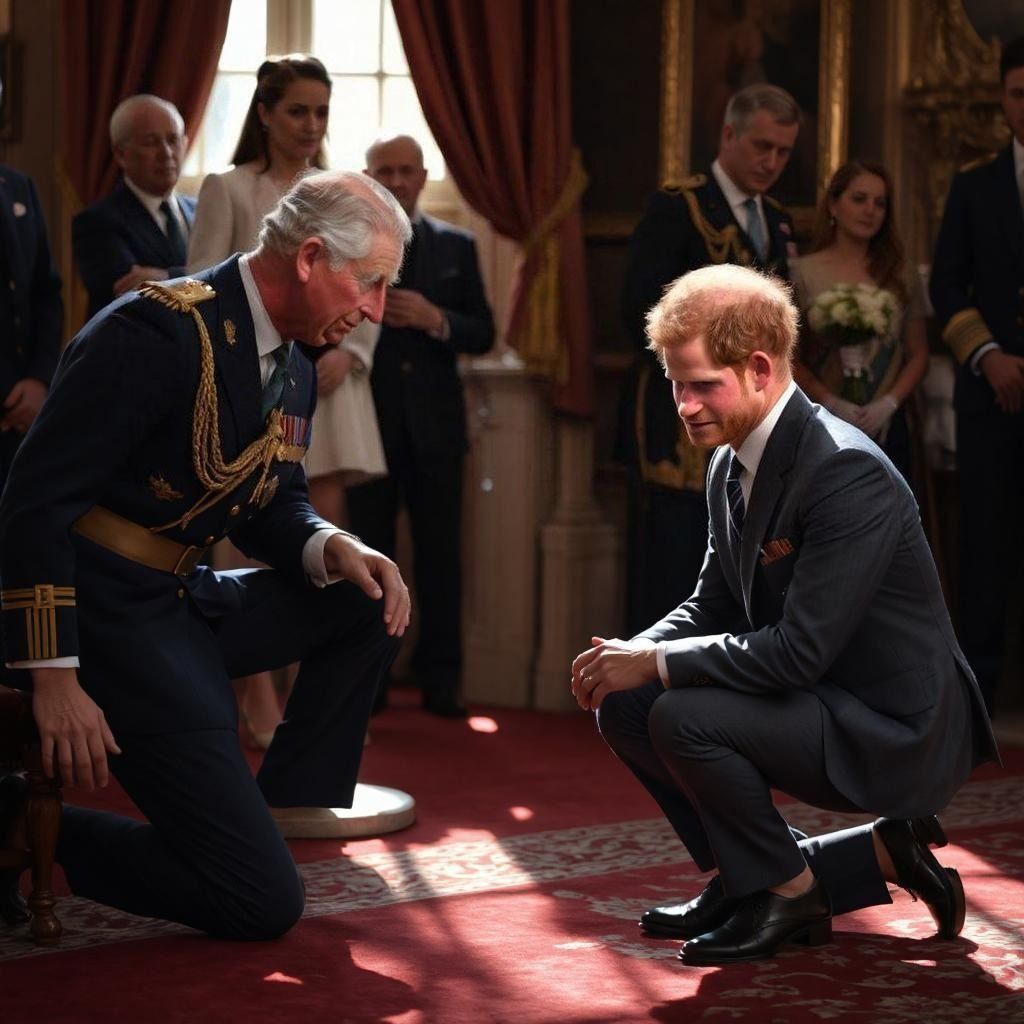In an emotional and unprecedented reunion, King Charles III and Prince Harry came together after five years of estrangement, leaving Buckingham Palace in shock. The meeting, which took place behind closed doors, was marked by tears, heartfelt apologies, and revelations that could alter the public’s perception of the royal family.

As the two sat together, Harry opened up about a significant personal struggle that had been weighing heavily on him. In a candid moment, he revealed to his father that he had inherited a genetic illness, a condition that had affected not only his physical well-being but also his mental health over the years. This revelation caught King Charles off guard, as he listened intently to Harry’s account of living with this illness and the challenges it presented in his life.
Sources indicate that Harry spoke about how this condition had affected his experiences in the royal family and his decision to step back from royal duties. The emotional gravity of the conversation deepened as Harry explained how the illness has shaped his identity and influenced his choices, both personally and professionally. This disclosure opened a pathway for understanding between father and son, highlighting the vulnerabilities that each has faced over the years.
King Charles, visibly moved by Harry’s revelation, expressed his concern and support for his son. The King acknowledged the importance of discussing health issues openly and emphasized the need for compassion within their family. This moment of connection was not just a personal healing for Harry but also an opportunity for King Charles to demonstrate his love and commitment to supporting his son.
The shockwaves from this reunion reached beyond the walls of Buckingham Palace, as royal observers noted the significance of such an open conversation between the two. It is rare for members of the royal family to discuss personal health issues publicly, making Harry’s candid admission a groundbreaking moment in royal history. This openness could serve to destigmatize discussions about genetic illnesses and mental health within the context of the monarchy.
In the wake of this reunion, speculation is rife about how Harry’s condition may impact his future role within the royal family. His decision to step back from royal duties has often been framed in terms of his desire for privacy and a more manageable lifestyle for his family. Now, with the added context of his health struggles, the narrative surrounding Harry may shift toward greater empathy and understanding.
As both King Charles and Harry continue to navigate the complexities of their relationship, this reunion may signal the beginning of a new chapter for the royal family—one rooted in transparency, healing, and mutual support. The bond between father and son, once strained by public scrutiny and personal differences, appears to be moving towards a more compassionate and understanding dynamic.
The public’s response to this reunion has been largely positive, with many expressing hope for the future of the royal family. As they continue to address their past grievances and support one another through personal challenges, there is a sense that healing is possible, not just for Harry and Charles, but for the entire royal institution. This emotional moment may ultimately pave the way for a stronger, more united family as they move forward together in the face of adversity.